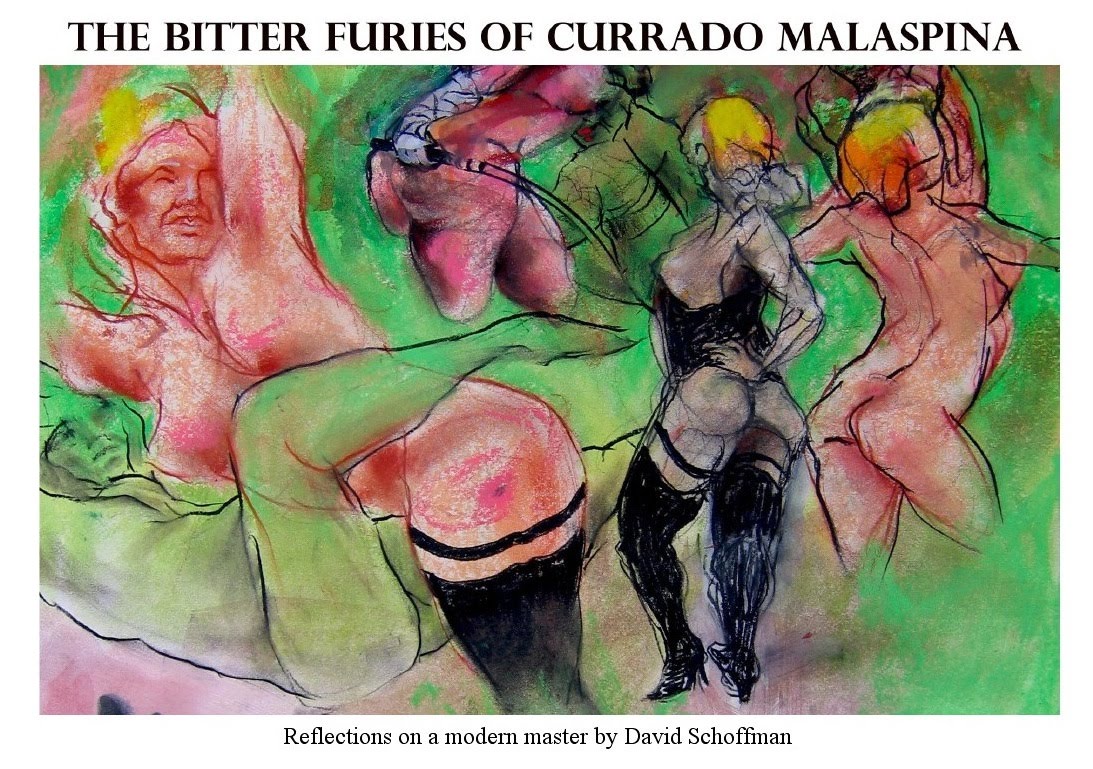 | |
| Art critic Spark Boon and Currado Malaspina, Cannes, 2013 |
Sullen and desultory, my crisis stricken friend Currado Malaspina recently submitted to an extensive interview with the young New York curator and art critic, Spark Boon.
Boon, it seems, has made a name for himself as a repentant disciple of deconstructive intertextuality. His master's thesis at CalArts, Bakhtin, Barthes, Caselli and the new Dialogic Drawing was published by Stopped Clock Press with the much less ponderous title: Plagiarism: A Love Story. His position at the time was that the physical properties of paper inevitably linked all graphic material into one hypertextual ecosystem. As such, Michelangelo's drawings are the aesthetic equivalent to a driver's license, a child's notebook or a lottery ticket. It was a stirring piece of scholarship and it quickly earned Boon the reputation of a fulgent, up and coming public intellectual.
The story goes that Boon's Road to Damascus moment came when his girlfriend enrolled him in a life drawing class at the Art Students League in order to wean him off Ritalin. He was so taken by the prolonged patience he was able to achieve while drawing that he began to devote himself almost exclusively to his newfound draftsmanship. This in turn compelled him to reevaluate his whole perspective on the post-modernist canon, turning him into a sniveling apologist for the outdated notions of beauty, craft, form and quality.
 | |
| Spark Boon, charcoal and pastel on paper, 2012 |
This in turn, brought him to Currado.
Spark Boon's sentimental recidivism and Currado Malaspina's pathetic 20th century modernist perspective are a perfect match. They recently spent many hours together in Cannes where Currado was recuperating from eye surgery. "His fawning attention is repellant," Currado wrote to me in a recent email, "but I hear he's a big-shot ('ayant une réputation non acquises') in Brooklyn, so I figured, why not?"
Why not!? I can think of about 200 reasons!




